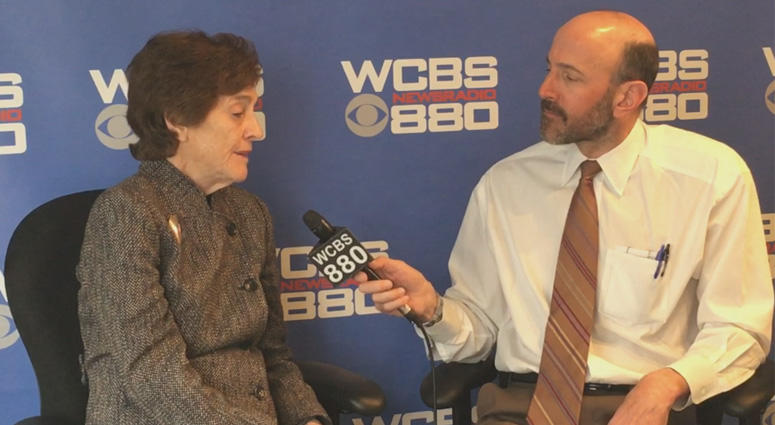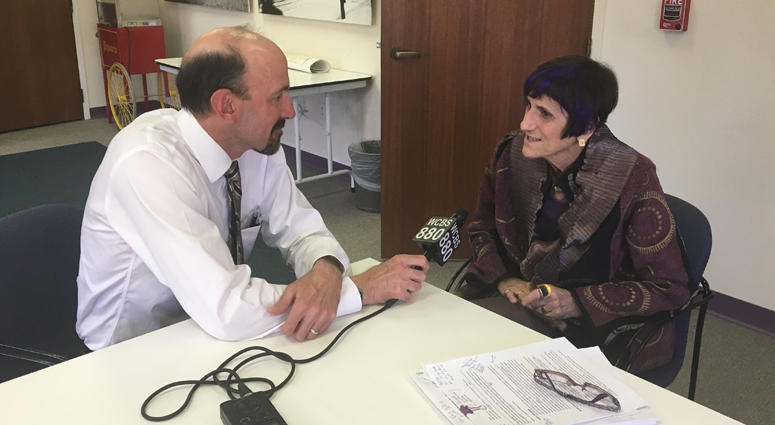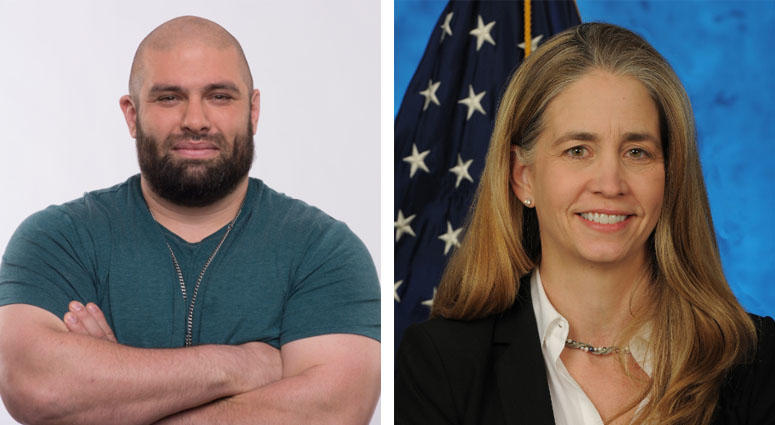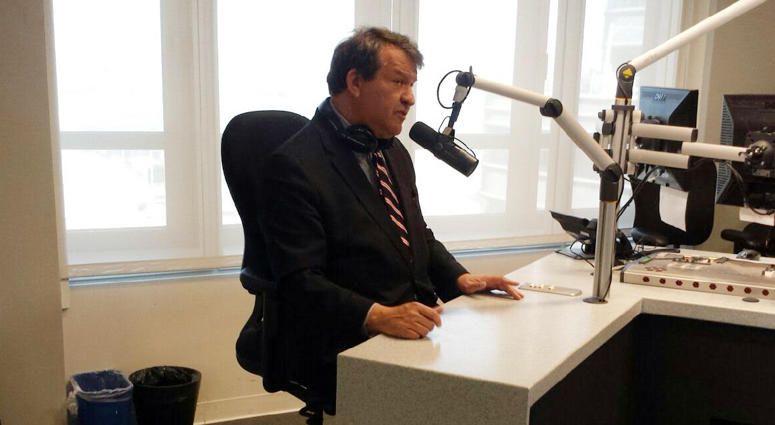
-
The New Wave: The Challenge of Getting More Women Elected
Post Views: 1,303NEW YORK (WCBS 880) — The number of women serving in Congress and other elected positions has grown dramatically over the years, but many say progress is taking too long.
In this week’s segment of The New Wave: Women in Politics, Peter Haskell looks at calls to get more women elected to office.
When Liz Holtzman was first elected to Congress in 1972, she was one of 16 women in the House of Representatives. In the Senate, there were none at all.
Thus, Congress was just 3 percent female.
But 45 years later, there are 107 women in Congress – 20 percent.
“We’re making progress, but too slow in my opinion, and with a lot of damage to the whole society,” Hotlzman said, “because we’re losing out on the talents of extraordinary women.”
Despite the record number of women candidates, Holtzman, 76, understands the process is incremental.
“You know, it may take another 20 years before we get halfway or more, but the fact is, ultimately, progress in this is just not stoppable. It’s going to happen,” she said. “Unfortunately, it’s taking far too long. But there’s no way of stopping the progress that women make.”
Political science professor Brigid Harrison of Montclair State University thinks the timing is right.
“With the large number of retirements, what we see is that this will be an opportunity for many women to get that foot in the door, and become the incumbents that are so hard to beat,” Harrison said.
Former New Jersey Gov. Christie Whitman said it is about more than just numbers. It is about governing.
“You need more women and you need more minorities at the decision-making table, because you need that different set of life experiences; a different way of approaching problems,” Whitman said. “You can’t, in today’s day and age, there’s no one group that has all the answers.”
Another issue is misconduct. Former New York state Attorney General Eric Schneiderman resigned after being accused of dating abuse.
Assemblywoman Nicole Malliotakis, who ran for New York City mayor, said it matters.
“You know, there’s an attractiveness about a female candidate, and I think it’s because men seem to get themselves in trouble, you know, whether it’s sex scandals, whether it’s corruption,” Malliotakis said.
But more women running also means more women losing. Nearly 90 female candidates have already lost congressional primaries.
Neil A. Carousso produced WCBS Newsradio 880 reporter Peter Haskell’s multi-platform series titled “The New Wave: Women in Politics.” See the video piece of this installment here.
-
The New Wave: Stereotypes, Prejudices and Other Challenges for Women In Politics
Post Views: 1,304NEW YORK (WCBS 880) — With a record number of female candidates, there is talk of this being the year of the woman. But progress has been slow.
In this week’s segment of The New Wave: Women In Politics, Peter Haskell looks at the challenges women have faced in getting elected.
“We live in a world, in a culture where sexism exists,” said former New York City Council Speaker Melissa Mark-Viverito, who has seen the challenges firsthand.
Sometimes the bias is about looks, and other times it’s about knowledge.
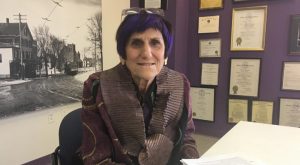
Rep. Rosa DeLauro (D-CT) (Peter Haskell/WCBS 880) Rep. Rosa DeLauro, D-Conn., remembers testifying about a big defense contractor in her district.
“I finished my testimony and Congressman Lewis from California he said to me, ‘Congresswoman DeLauro, can you talk about the M1-A1 tank and the engine without looking at your notes?’ and I turned to him and I said, ‘Damn straight I can,'” she said.
“What do you make of that?” Haskell asked.
“It was just about women don’t deal with the defense industy,” DeLauro said.
She says there’s a continuing double standard.
“Women have to work harder still today. A lot of my male colleagues can stand up, and say whatever they want. They can drool on the floor of the House of Representatives and it doesn’t make any difference. Women have to know what they are talking about,” DeLauro said.
Part of the problem has been the old boys network.
“Women are far less likely to get asked to run for office by party officials, elected officials, influential community leaders,” said Jean Sinzdak, deputy director of the Center for American Women and Politics at Rutgers.
Former New Jersey Gov. Christie Whitman points to a problematic perception.
“Women will always be looked on as primary caregivers — whether it’s for children, spouses, significant others, parents it doesn’t matter. And that has engendered this idea that somehow you can’t do that and still be effective at your job, which is just simply not true,” Whitman said.
Former New Jersey Lt. Gov. Kim Guadagno said when she was running for the Monmouth County sheriff’s office, she was asked, “How are you going to run a jail and run a law enforcement agency when you have three children?”
“They wouldn’t ask a man that question. They would assume a man wouild be able to do it and have children,” Guadagno said. “And my answer was: ‘The same way you do. You have a family, you have a very supportive spouse, you have help and you raise your kids.'”
Liz Holtzman, a former congresswoman and former Brooklyn district attorney, said prejudices and stereotypes are still standing in the way of women.
“There are stereotypes out there that women can’t do certain kinds of jobs, particularly executive jobs. Those stereotypes are very hard to eradicate,” Holtzman said. “We made a lot of progress. When I was first elected and took office in 1973, there was no woman on the Supreme Court; there’d been no women of any prominence holding the top cabinet positions; women weren’t heads of symphonies or univerisities. We’ve seen that change.”
Although progress has been made, Holtzman said the country still has a long way to go.
“The basic attitude is still too pervasive that women can’t do this job and women can do the job and women will do the job,” she said. “I think there’s a long way to go, and I’m very troubled and a bit disheartened by the lack of progress we’ve made in terms of changing people’s attitudes about the role of women in society.”
But Brigid Harrison, who teaches political science at Montclair State University, said she is seeing some improvements.
“Women, compared to say 20 or 30 years ago, have larger professional networks. They have more net worth and so they’re better able to fund their campaigns. They’re better able to have connections to fund their campaigns,” Harrison said.
However, there are still plenty of obstacles. Harrison said one of the greatest challenges is how congressional districts are configured.
“Twenty years ago, it may have been possible to primary an incumbent member or it may have been possible to run in a competitve district and knock off an unpopular incumbent. Today, given the sophisticated way in which mapmakers create our congressional districts — and that’s done on the state level — in about 90 percent of the seats, of Congress the winner is predetermined simply because of the partisan advantage in that district,” Harrison said. “That’s an incredible obstacle for women who are not incumbents to overcome.”
Not to be ignored is the power of incumbency. House incumbents win 95 percent of the time. If women pick up seats this year, that could help generate momentum going forward.
Neil A. Carousso produced WCBS Newsradio 880 reporter Peter Haskell’s multi-platform series titled “The New Wave: Women in Politics.” See the video piece of this installment here.
-
The New Wave: Surge Of Women Running For Office
Post Views: 1,498NEW YORK (WCBS 880) — The midterm congressional primaries are kicking into full gear and there is a tidal wave of female candidates running for office this year.
Although filing deadlines have yet to pass in every state, the country is already seeing a record number of women running for Congress. Many women are also on the ground in gubernatorial races, as well as some state legislative and municipal elections.
“We’re looking at close to double the number of women who ran in previous record years,” said Debbie Walsh, director of the Center for American Women in Politics at Rutgers. “When we look at the U.S. Senate, the U.S. House and statewide elected offices we’re at over 700 women who are running for office. We’re really seeing a huge increase in the U.S. House.”
Many believe the 2016 presidential election is responsible for inspiring women to run.
“So many people got engaged in that election whether they were pro-Trump or pro-Hillary and they got off the sidelines and started volunteering and talking about politics,” said Mendham Township Committeewoman Amalia Duarte. “I think right now it’s wonderful because women need to be represented, we need to be at the table otherwise we’re on the menu, or so goes the quote. I’m hoping that women continue to be engaged, continue to run and continue to stay involved in politics because it’s important. These are our lives.”
Walsh credits President Donald Trump.
“I think a piece of it was the defeat of Hillary Clinton, I think a larger part of that though is the election of Donald Trump,” Walsh said. “I think for a lot of women they thought that when the Access Hollywood tape came out that he couldn’t possibly win, that it would be disqualifying for anyone to get elected president of the United States who openly talked about sexually assaulting women.”
Montclair State University Political Science and Law Professor Brigid Harrison agrees.
“We can’t deny the influence that President Trump’s incendiary rhetoric has had,” Harrison said. “It has really ticked some women off and really made them mobilized and compelled to do something on a very personal level.”
But Walsh thinks it goes beyond sexism.
“I think it went also to the actual policies that women care about and feeling like some of the things that they were concerned about — issues like health care and the environment — were really in jeopardy and that they needed to have a voice of their own,” Walsh said. “It was a real kind of clarion call about the fact that elections have real consquences and that women really felt that they had to find a way to have their own power, their own voice and to be able to exercise their power in the electoral system and I think all of that has led to women being more engaged.”
Roughly three-quarters of the congressional female candidates are Democrats.
“There needs to be more done on the Republican side because political parity will not be achieved in this country on the back of one political party, both parties have to have a commitment to that,” Walsh said.
But it’s not just Democrats.
“On the Republican side, you are seeing some Republican women saying, ‘You know what, this is not my party. This is not what I believe in. I’m not a Democrat but this does not represent how I see the future of my party and so I’m going to do something abnout it,'” Harrison said.
Republican Chele Chiavacci Farley, who is challenging U.S. Sen. Kirsten Gillibrand, said she’s been traveling the state and speaking to people told her they’re appalled and disappointed at the general chaos they see in Washington.
“There’s obstruction on both sides of the aisle and they’ve lost faith in their government leaders,” Farley said.
Over the coming weeks, WCBS Newsradio 880 will examine the challenges women have faced, what it will take to achieve parity and how the political landscape is changing.
Neil A. Carousso produced WCBS Newsradio 880 reporter Peter Haskell’s multi-platform series titled “The New Wave: Women in Politics.” See the video piece of this first installment here.
-
Campaign Urges Veterans To Get Mental Health Care If They Need It
Post Views: 1,260NEW YORK (WCBS 880) — May is Mental Health Awareness Month, and the U.S. Department of Veterans Affairs has launched a campaign to urge veterans to get help for if they need it.
The campaign is called “Mental Health Means a Stronger You.” It aims to reshape the perceptions and treatment by outlining the success stories of vets who have reached out for mental health support.
WCBS 880 Producer Neil A. Carousso talked about the campaign this week with Marine Corps veteran Moses Maddox – now veterans retention counselor at California State University San Marcos – and Dr. Wendy Tenhula, director of innovation and collaboration at the U.S. Department of Veterans Affairs.
It is part of the “Make a Connection” program, the VA’s ongoing national mental health outreach effort.
“While the conversation for mental health has gotten better, there’s still this stigma that, you know, either you’re weak or you’re crazy – a variety of things that people say when it comes to seeking, you know, mental health, that frankly just aren’t true, and that treatment is something that should be thought out, and that recovery can be achieved as long as you take your treatment seriously and as long as you actually go out there and seek that help,” Maddox said.
Maddox said some veterans might not seek out mental health care because of the stigma, some are concerned that it might limit their employment opportunities, and some don’t want to admit they need help because they feel like they can go through anything after having gone to war.
“And then they come home, and something as simple as a college class is extremely difficult because they’re cycling through things,” Maddox said. “So there’s a variety of reasons why people don’t go seek help, and this movement that we’re trying to do; this message is to say, ‘Hey, OK, people have been there before. We’ve gone through it. You’re not alone. Don’t be afraid to open yourself up and get that help.”
Tenhula said the “Make a Connection” program was launched a few years ago “to raise awareness about mental health conditions and to inform veterans, as well as their family members and other loved ones, as well as their country at large, that mental health conditions are treatable.”
She said hundreds of veterans have come forward and talked about their own difficulties, the treatments they have received, and how those treatments have made a difference.
“There are effective treatments available, and that recovery is possible,” Tenhula said.
Maddox said there are many factors that go into an effective mental health care treatment program.
“One is having a really good counselor who is very honest about the process; who told me that some days are going to be better than others; that there’s going to be sessions where I might leave the session feeling worse than when I started, but it was all part of the process,” he said.
He added that the first step is just to get help and understand that doing so can be scary and stressful – particularly since a therapist will start out as a stranger to whom a veteran is assigned.
“But keep in mind that it is OK; that it is a process, and you have to stick with it. There’s going to be days where it’s incredibly difficult. There’s going to be times when it’s going to be hard to go out of bed, and there’s always an excuse; a reason not to go. You have to not listen to that,” Maddox said. “Once you take that first step, you have to follow through, and those stressors tend to go away once you get comfortable with the process; once you start to see little incremental changes.”
The VA has also expanded the methods veterans can use to access mental health care, Tenhula said
“We’ve expanded the use of telehealth for mental health conditions, so a veteran can be in one location, and their doctor or therapist can be in another location, and they can work together using video conferencing technology. VA also has a number of mental health-related mobile phone apps,” she said.
Maddox’s message for other veterans was that he has an idea of what they’re going through – and he said veterans like openness, honesty, and frankness.
“It’s natural. But you’re not weak for going to seek out mental health treatment, and in fact, saying that I do need help is a great sign of strength, and that’s what we really encourage,” Maddox said.
-
After 100 Days In Office, Westchester County Executive Says Budget Is Top Concern
Post Views: 1,350NEW YORK (WCBS 880) — George Latimer is marking 100 days in office as Westchester County Executive.
The Democrat was elected last fall, unseating two-time popular incumbent Republican Rob Astorino. Latimer is a lifetime Westchester resident — born in Mount Vernon, a product of public schools, and a graduate of Fordham in the Bronx. He was a marketing executive for two decades before jumping into politics. He has served in various roles in city, county and state government along the way, and he has never lost an election.
He ran for county executive on promises to hold the line on taxes, fight to preserve the environment, build up urban centers, increase opportunities for minorities and women in business, and increase investment in mental health and fight the opioid crisis.
During an appearance Wednesday morning on WCBS Newsradio 880, Latimer told Wayne Cabot and Paul Murnane that the budget is a top concern.
A full audit is underway, but an early look shows the county has a budget gap that will likely grow.
“The state comptroller came in to the fiscal review, identified that some revenues were overestimated — sales tax, state aide. And we know already that we have a major union contract that’s gone seven years unresolved and that’s accumulating a pretty hefty prospective charge if we’re able to close it off,” Latimer said.
The county executive said he’ll try to encourage villages to share some services as a way to cut costs.
“What we have to do at the county level is try to give them incentives to combine or work with the county on the delivery of services,” Latimer said. “We’re obviously concerned about how can identify shared services, ways of restructuring how we deliver shared services — police, sanitation — things that we’ve come to understand can be done by every local municipality but now we have to look at doing them in some combination of delivery.”
A caller also expressed concerns about what will happen to the communities that stand to lose revenue when the Indian Point Nuclear Plant closes in the coming years.
Latimer said the goal is to repurpose the land that the plant sits on.
“Part of it is going to always remain to house the spent fuel rods but the rest of the land sits on the Hudson and if it can be repurposed productively, and that’s open-ended. That’s a question economic development and how we incentivize that,” Latimer said.
He favors creating an enterprise zone “where we can give some special tax discounts that would allow us to bring something else into that land.”
“I don’t know that you’re going to get the same economic boon that you had with Indian Point but I think we can help offset it until the economy restructures itself in that area,” Latimer said.
The county executive also addressed a question from a caller who asked why a new Westchester County police commissioner has yet to be appointed.
“We haven’t found the right person yet,” Latimer said. “Public safety is an important position and we want to make sure we make the right decision. We’re not into hiring and firing and rehiring.”
Another caller asked Latimer about lighting on the Bronx River Parkway.
“All the lights on the parkway work in the Bronx section but none of them seem to work on the Westchester side,” the caller said.
The issue comes down to money. The project has to be funded through the capital budget.
“Everybody says,. ‘Well let’s keep our taxes low, don’t spend anymore money, don’t raise my taxces,’ but there are capital needs,” Latimer said.
The county executive doewsn’t sound optimistic this will happen anytime soon.
“I hope by the time I say goodbye in this position both he and I will be able to drive the Bronx River fully lit,” Latimer said.
Neil A. Carousso produced WCBS Newsradio 880’s live-to-tape interview on the WCBS Opening Bell Report on Wednesday, April 11, 2018.
Guest
Social Feeds

VIDEO: Told the airline to book us on the next flight out (SPONTANEOUS TRIP!)

VIDEO: The Taylor Swift Effect | WCBS Business Breakfast

VIDEO: Future of NYC | WCBS Business Breakfast

VIDEO: Reasons for New Yorkers to be Optimistic | WCBS Business Breakfast

VIDEO: NYC's AI Chatbot | WCBS Business Breakfast


